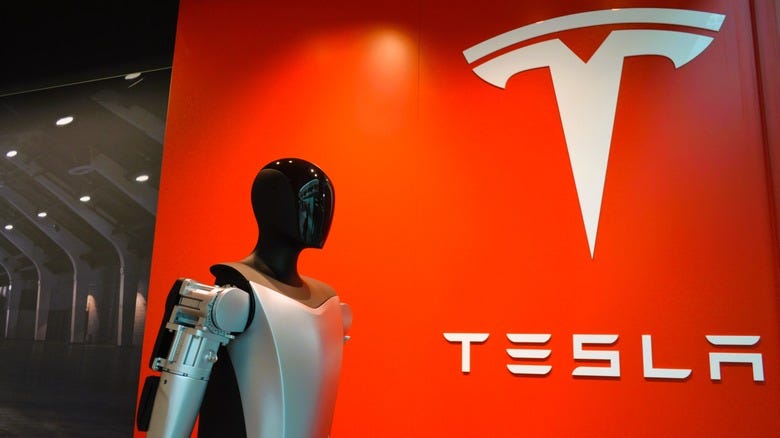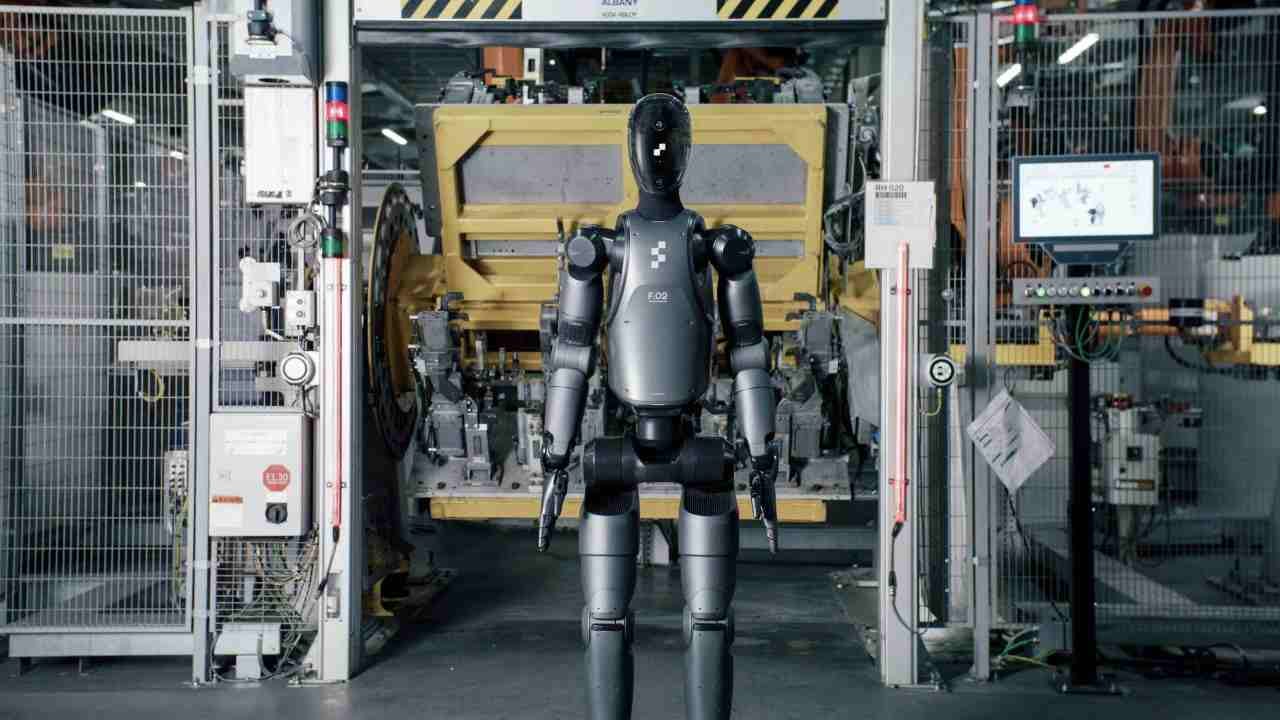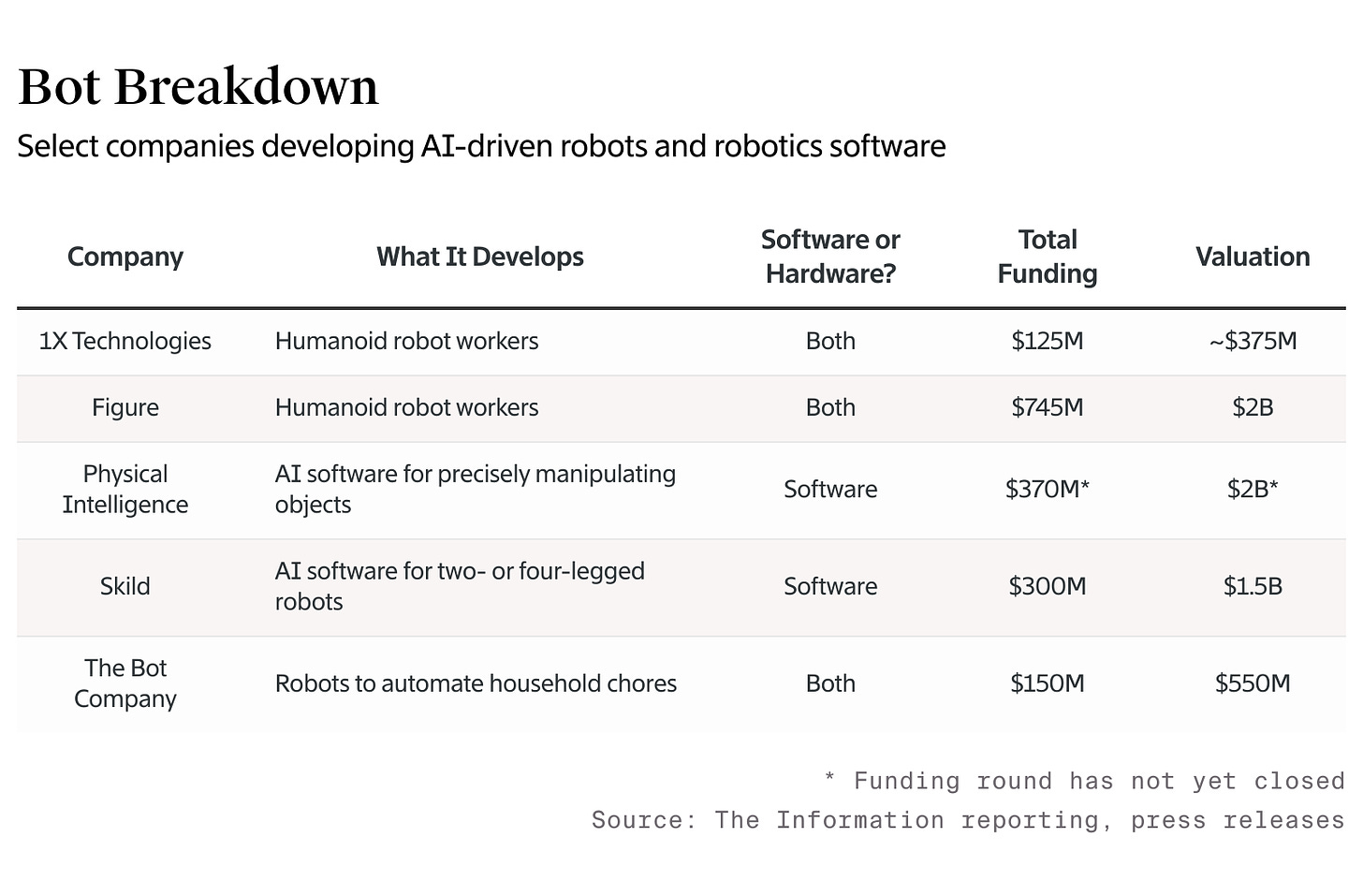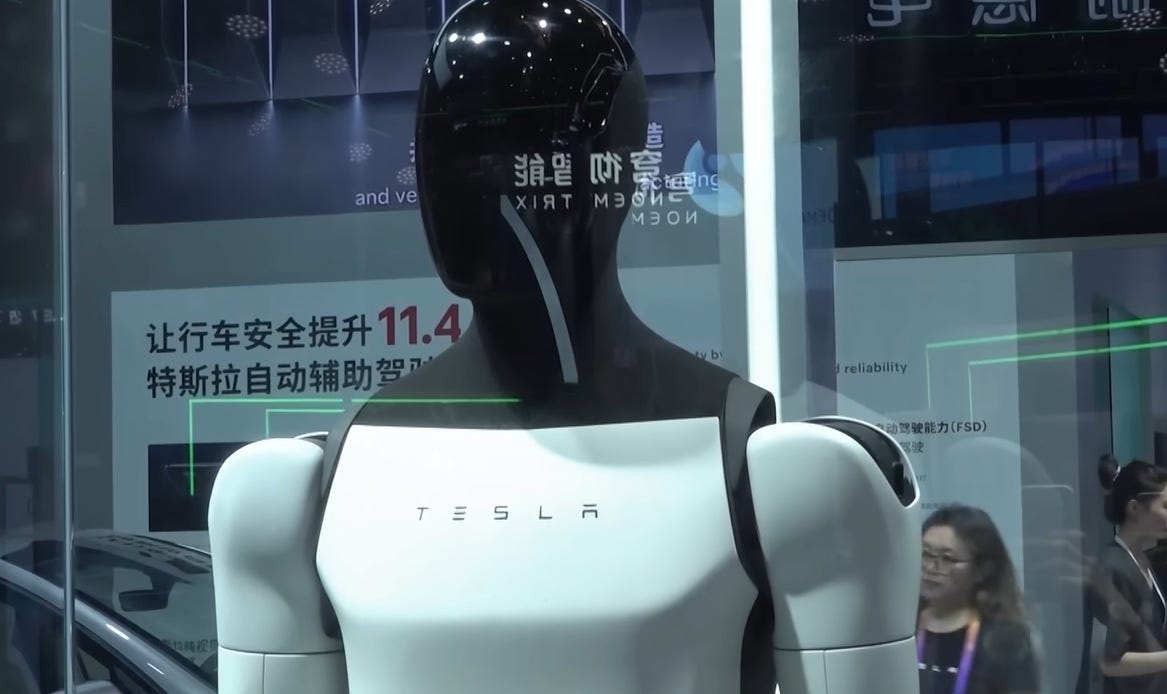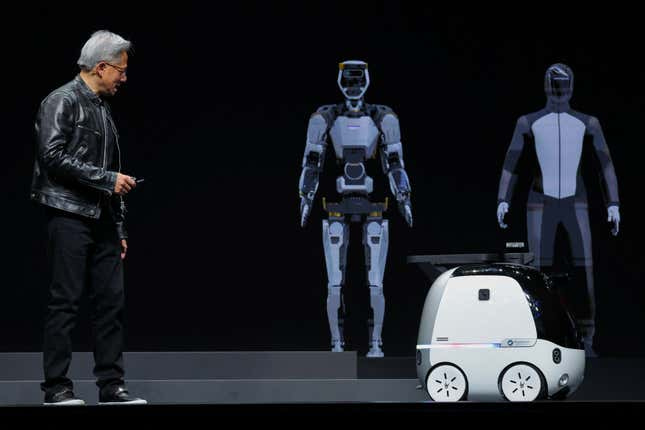
AI: 'Foundation Robotics' investments ramp up. RTZ #517
Investor enthusiasm for ‘AI Robots’ continues to build in this AI Tech Wave. And it’s independent of Elon Musk’s humanoid robot initiatives at Tesla. And the never-ending flow of cool Hyundai owned Boston Dynamics robots on YouTube (see above).
It’s a subject I’ve covered before, especially in terms of ‘Foundation Robotics’ based on LLM AI technologies likely taking longer than expected to Scale for business and consumer uses. Not the least of it is the relentless innovations that are underway by both incumbents like Google, Nvidia, and new robotic startups.
The Information updates us on the Robot startup landscape in “Robotics Startup Discusses $2 Billion Valuation Months After Founding”:
“The race to develop physical robots powered by artificial intelligence is on again, despite the industry’s track record of failures—and the threat that OpenAI, which has dominated advances in conversational AI, will become a bigger rival.”
“Physical Intelligence, a startup developing software for robots that could work in a range of industries, has told investors it wants to raise $300 million at a valuation around $2 billion, according to two people with direct knowledge of the talks. The San Francisco company, which hasn’t unveiled its first product yet, has told investors it’s received several offers, according to one of those people.”
“The financing discussion comes just eight months after its incorporation in Delaware and seven months after it raised $70 million at a valuation of about $400 million from investors including Khosla Ventures, Lux Capital, Sequoia Capital, Thrive Capital and OpenAI.”
And like many other LLM AI startups, the robotic startups are also rushing from research labs and universities to commercial startups:
“The startup, which also goes by the name Pi, after the mathematical constant, is developing software that helps robots perform complex tasks requiring the ability to manipulate objects precisely—folding clothes, for instance. It was founded by Google DeepMind researcher Karol Hausman, the startup’s CEO, as well as computer science professor Sergey Levine; professor and former Google AI researcher Chelsea Finn; and venture capitalist Lachy Groom.”
“Investors have flocked to robotics startups in the last year as founders, often hailing from big technology companies or prestigious academic institutions, have harnessed advances in generative AI that improve computers’ ability to learn complex behaviors. One of these technologies, known as diffusion, can help robots more effectively mimic human behavior, such as manipulating objects or navigating the real world.”
“In February, Figure, which is developing humanoid robots, raised $675 million at a $2.6 billion valuation. Then in May, Cruise co-founder Kyle Vogt raised $150 million for The Bot Co., which plans to develop robots that can complete household chores. And in July, Skild, a rival to Pi that is developing software to power robots with two to four legs, raised $300 million at a $1.5 billion valuation.”
The headwinds on many of the basic technologies around Foundation Robotics, remain strong:
“These startups and their investors are hoping to overcome a range of obstacles—including potential competition from OpenAI. In March, the ChatGPT developer rebooted its robotics software team after shutting it down four years prior. It could eventually compete with Pi, Figure and humanoid robotics maker 1X Technologies, despite the fact that it has financially backed all three, and at least Figure and 1X use OpenAI models.”
And the field is seeing its own share of attempts not working out:
“The robotics field is also littered with disappointments. Among the most well-known flubs, SoftBank three years ago ceased production of Pepper, a humanoid robot that the Japanese tech conglomerate had envisioned as a replacement for human workers. Last year, Zume, which raised $375 million from SoftBank to automate pizza-making with robots, shut down. And Alphabet last year shut down a subsidiary developing mobile robots that aimed to clean surfaces or help with other domestic tasks.”
Additionally, as I pointed out this Fall, there is also ramping competition from Chinese robotic startups, with the tail winds of their formidable supply chains:
““China dominates the market for electric vehicles. Now it’s chasing Tesla (TSLA.O), opens new tab in the race to build battery-powered humanoids expected to replace human workers building EVs on assembly lines.”
“At the World Robot Conference this week in Beijing, over two dozen Chinese companies showed off humanoid robots designed to work in factories and warehouses, with even more displaying the made-in-China precision parts needed to build them.”
“China’s push into the emerging industry draws from the formula behind its initial EV drive more than a decade ago: government support, ruthless price competition from a wide field of new entrants and a deep supply chain.”
““China’s humanoid robot industry demonstrates clear advantages in supply-chain integration (and) mass production capabilities,” said Arjen Rao, analyst at China-based LeadLeo Research Institute.”
“I point out all these details on both the humanoid and industrial robot markets to emphasize two key points: 1) they’re all being ramped with the latest versions of Foundation LLM AI technologies, and (2), China has some key advantages in industrial supply chains and scale of production.”
“US companies, both new startups and incumbents like Google, OpenAI, Nvidia, Tesla and others have the definitive advantage in AI technology innovation. BUT, China remains the place to watch for mass production of these robots at Scale.”
But the opportunity to ‘reinvent’ robots, humanoid or not, with Generative AI remains too tempting given the enormous enthusiasm around LLM AI companies. Despite the ongoing debates on the timing of their success.
The robots are now running hard in this AI Tech Wave too. Big and small players together. Stay tuned.
(NOTE: The discussions here are for information purposes only, and not meant as investment advice at any time. Thanks for joining us here)

